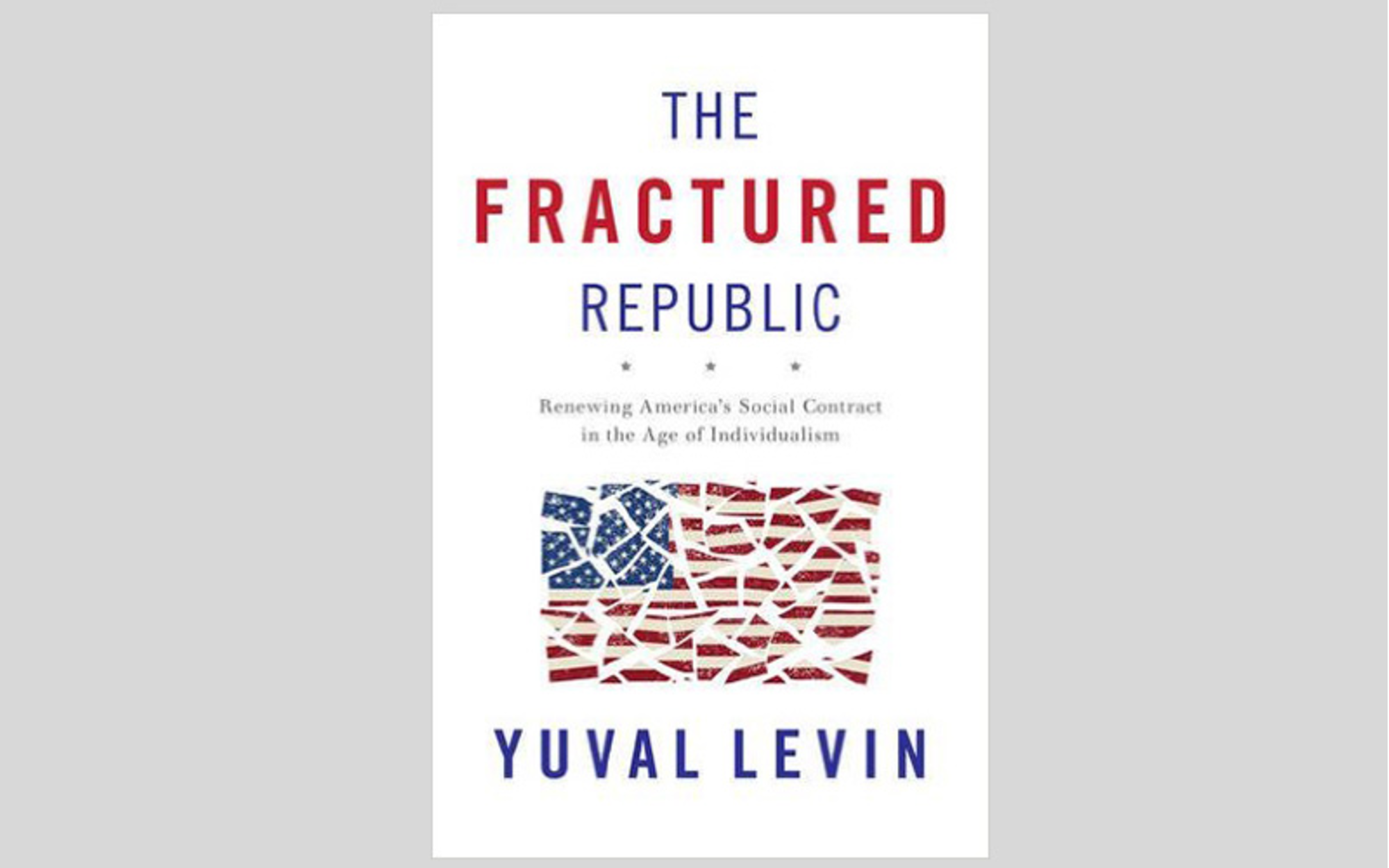Given the near-constant wave of controversy, name-calling and finger-pointing surrounding the upcoming presidential election, the polarization of the nation’s two primary political parties has perhaps never been more evident. Yuval Levin’s “Fractured Republic: Renewing America’s Social Contract in the Age of Individualism” looks to examine the root causes of the nation’s notable division, and it does so by discussing, at length, one of those root causes he believes is especially significant: nostalgia.
Though the sentiment is something he feels is having negative effects on those on both sides of the political spectrum, he is careful to note the distinction between the time periods for which those on the left and right are particularly nostalgic. Democrats, he asserts, long for the restless, freewheeling nature and “social liberalization” that dominated much of the 1960s, and, more specifically, the days of Lyndon B. Johnson. Republicans, meanwhile, are more likely to wax poetic about the 1980s, and, more specifically, the Reagan era, which many view as a time of stability, confidence and low taxes.
The result of this tendency toward nostalgia for certain eras, Levin asserts, is a divided modern political system, and an equally divided American public. The conditions we view with nostalgia—moral growth, social growth and the provision of general order from large institutions, but otherwise, minimal interference—arose from a unique set of circumstances, and they aren’t necessarily relevant to the challenges of today. The modern world is different: highly fragmented and individualistic on the one hand, and a huge and inflexible state on the other. So, what can be done about, as Levin calls it, this “fractured republic,” and where and how can Americans start to pick up the pieces?
Levin believes the answer comes down to a relatively simple social concept: subsidiarity, a somewhat politically incorrect notion that he defines as keeping, “power, authority and significance as close to the level of interpersonal community as reasonably possible.” Or in other words, Levin’s prescription, as a thoughtful conservative, is to revitalize the smaller communities built around churches, school boards, universities, community service organizations and the like, and to only have larger institutions – including governmental organizations – step in only when doing so is absolutely necessary.
Essentially, Levin’s message is one of hope, and throughout the book, he remains optimistic without proving unrealistic. He attributes much of the demise of America to the fact that the things that once helped manage our moral compasses, such as the bonds of faith, family and community, no longer hold our collective attention in the manner they once did. The same things that used to unite us and help us create strong social bonds have somehow become secondary to big business, big government and rampant individualism. What we have become is a society fixated on consumerism and, to some degree, feeling sorry for ourselves, and very much to our own detriment.
It’s a problem that extends to our political parties, too, argues Levin throughout his work, and, having followed the news quite intensely myself in recent months, it’s a point that is hard to refute. What is less obvious, however, is whether Levin’s call for a return to subsidiarity would have its intended effect, and whether it would help Americans progress in terms of unification, cohesiveness, and solidarity. Whether Levin’s ideals will ever come to fruition remains to be seen, but he certainly makes it sound possible – and for me, that alone is worth the read.




